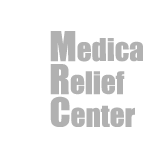Treatment encompasses, but is not limited to:
- Assessment of clients with actual or potential impairments, pain, functional limitations, disabilities or other health-related conditions using detailed history-taking, as well as specific tests and measures for screening, establishing a diagnosis and monitoring.
- A Posture Specialized test.
- Analysis of assessment findings (to identify the nature and extent of the client’s impairments, activity limitations, and participation restrictions within the context of the client’s needs).
- Diagnosis resulting from assessment findings and clinical reasoning to determine abilities, functional needs and potential for change.
- Planning an intervention strategy (consistent with the client’s goals, general health status, functional needs, and assessment findings and that incorporates the application of selected approaches and techniques supported by the best evidence available).
- Implementing selected interventions safely to relieve pain; achieve and maintain mobility, health and fitness, functional independence and physical performance; and manage the identified impairments, disabilities and limits to participation
- Evaluation of health status through use of appropriate measurable outcomes as a baseline for monitoring or to determine the result, impact or effectiveness of physiotherapy intervention.
- Education of the profession, other health professionals, the public and clients and their families with the intention of transferring knowledge and skills and developing understanding, independence and competence.
- Consultation that provides professional advice and solutions addressing a wide range of health service and health status issues.
- Research that encompasses the application of critical inquiry, as well as participation in or assessment of findings from research activities.
- Service management related to planning, directing, organizing and monitoring service delivery and effective utilization of resources.
- Communication with clients, team members and others to achieve collaboration and service coordination.
- Advocacy on behalf of clients and the profession to enhance individual and community health including health and wellness promotion and disease prevention.
- Lifelong learning to continuously develop knowledge and skills for the purpose of improving client outcomes and physiotherapy practice.

